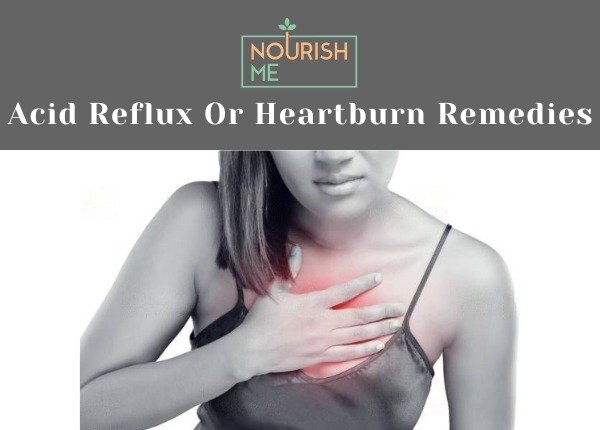When experiencing heartburn or acid reflux, what kinds of meals should you avoid? Acid reflux occurs when stomach acid flows back up into the esophagus. This occurs when the lower esophageal sphincter (LES) relaxes, and stomach acid is permitted to rise. If acid reflux occurs morethan twice a week, your doctor may diagnose you with gastroesophageal reflux disease (GERD).
Acid reflux may be caused by several food-related variables, such as:
- The position of your body following a meal • The quantity/quality of food consumed
You can control each by changing your diet and eating habits. Eating less and standing up straight after meals can prevent reflux. Although there is no universal agreement, many scientists agree that avoiding certain meals and beverages can help alleviate acid reflux symptoms including indigestion. Fried foods and other high-fat dishes Fatty foods reduce pressure on the LES and slow gastric emptying. There’s a chance this could make your acid reflux symptoms worse.
Some examples of foods that are high in fat are shown below. • french fries • potato chips • whole milk • cheese • ice cream • high-fat creamy salad dressings • creamy sauces and dips
SPICY FOODS
When eating spicy meals, people with functional gastrointestinal disorders may experience discomfort and even burning in the stomach. Capsaicin, the chemical ingredient responsible for giving food its fiery flavor, can irritate the esophagus and lead to heartburn.
FRUITS AND VEGETABLES
Fruits and vegetables are an important part of any diet. But certain types might make your GERD symptoms worse. The following fruits and veggies often cause acid reflux • pineapple • citrus fruits, such as oranges, grapefruit, lemons, and limes • tomatoes (and tomato-based foods) • garlic and onions Consult a doctor about your tolerance level. A dietitian may be able to help you create a healthy eating pattern.
BEVERAGES
People with GERD may also feel sick when they drink a few common drinks. These things are: • alcohol • carbonated drinks • coffee and tea • orange juice etc Watch your symptoms and only drink what you can handle.
OTHER FOODS, MEDICATIONS, AND SUPPLEMENTS
A number of additional foods, drugs, and supplements may impair LES function, leading to GERD symptoms. For instance, you may suffer symptoms following the consumption of mint chocolate, including peppermint and spearmint.
• refined foods • antibiotics • aspirin and other analgesics • bisphosphonates • calcium channel blockers • iron or potassium theophylline supplements
If you think a prescription or supplement is causing acid reflux or heartburn, you may stop using it. However, Consult a doctor before stopping any prescriptions.
HOME REMEDIES
1. Fennel/Saunf 1 teaspoon fennel powder in warm water relieves acidity, heartburn, bloating, and improves digestion. 2. Almonds In addition to possibly lowering the likelihood of experiencing heartburn, the high nutrient and fibre content of almonds can also serve to absorb any excess acid that does occur. 3. Peppermint Not only do mint leaves aid digestion, but they also have a refreshing effect on the body as a whole. Mint leaves provide temporary relief and long-term support for acid reflux. 4. Buttermilk Buttermilk has a calming effect on the stomach because the lactic acid in it restores the natural pH balance. Acid reflux is quickly alleviated by drinking buttermilk seasoned with black pepper and ground coriander. 5. Banana Bananas have been shown to reduce acidity and provide relief from heartburn.Acid secretion can be regulated with a combination of milk and banana. 6. Ajwain Consuming ajwain helps reduce stomach acid and gas. It is an excellent anti-acidic agent and is great for digestion. 7. Cold Milk A glass of chilled milk is a quick fix for acid reflux. 8. Try some chewing gum Evidence from a few studies suggests that the bicarbonate in gum can help neutralise acid and cut down on heartburn by decreasing the frequency of indigestion. 9. Turning over onto your left side before bed Food-related advice aside, you may also try sleeping on your left side or exercising regularly, for example, if you’re still having trouble. This approach to neutralising acidity has to do a great deal with anatomy. When we lie on our left side, the lower oesophageal sphincter is above the level of stomach acid because the oesophagus connects to the stomach on the right side. 10. Keep your head up when you snooze Another potential solution is to raise the head of the bed to alleviate acid reflux while you sleep. Sleeping on a wedge that props up the upper body reduces acid reflux compared to lying flat, according to research.
SUMMARY
By modifying your diet and eating habits, you can lessen your acid reflux symptoms and need for antacids. You might feel better if you eat less and try to stay upright after meals. Try to stay away from high-fat, spicy, and certain fruits, vegetables, and drinks if they make your symptoms worse. You might also feel sick after taking a drug or supplement. Talk to your doctor if this happens. They might be able to suggest different medicines or ways to deal with your symptoms.





